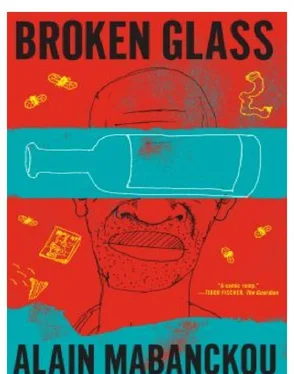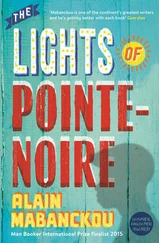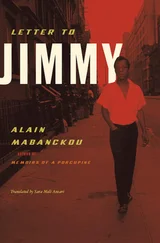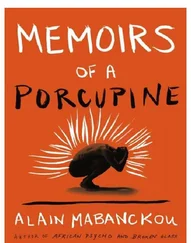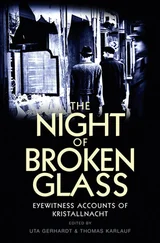Alain Mabanckou
Broken Glass
To Pauline Kengué, my mother
let’s say the boss of the bar Credit Gone West gave me this notebook to fill, he’s convinced that I — Broken Glass — can turn out a book, because one day, for a laugh, I told him about this famous writer who drank like a fish, and had to be picked up off the street when he got drunk, which shows you should never joke with the boss, he takes everything literally, when he gave me this notebook he said from the start it was only for him, no one else would read it, and when I asked why he was so set on this notebook, he said he didn’t want Credit Gone West just to vanish one day, and added that people in this country have no sense of the importance of memory, that the day when grandmothers reminisced from their deathbeds was gone now, this is the age of the written word, that’s all that’s left, the spoken word’s just black smoke, wild cat’s piss, the boss of Credit Gone West doesn’t like ready-made phrases like “ in Africa, when an old person dies, a library burns ,” every time he hears that worn-out cliché he gets mad, he’ll say “ depends which old person, don’t talk crap, I only trust what’s written down ,” so I thought I’d jot a few things down here from time to time, just to make him happy, though I’m not sure what I’m saying, I admit I’ve begun to quite enjoy it, I won’t tell him that, though, he’ll get ideas and start to push me to do more and more, and I want to be free to write when I want, when I can, there’s nothing worse than forced labor, I’m not his ghost, I’m writing this for myself as well, that’s why I wouldn’t want to be in his shoes when he reads these pages, I don’t intend to spare him or anyone else, by the time he reads this, though, I’ll no longer be one of his customers, I’ll be dragging my bag of bones about some other place, just slip him the document quietly before I go, saying “mission accomplished”
I’ll start by describing the row that broke out when the bar first opened, explain a bit about the sufferings of the boss, some people wanted to see him taking his final breath, drawing up his Judas testament, it began with the church people, who, noticing their Sunday congregations had dwindled, launched a holy war, flinging their Jerusalem Bibles at the door of Credit Gone West, saying if things went on like this it would be the end of Sunday Mass in our district, there’d be no more trances during the singing, no more Holy Spirit descending on Trois-Cents, no more crispy black wafers, no more sweet wine, the blood of Christ, no more choir-boys, no more pious sisters, no more candles, no more alms, no more First Communion, no more Second Communion, no more catechism, no more baptism, no more anything, and everyone would go straight to hell, and after that the Weekend-and-Bank-Holiday-Cuckolds Club waded in, claiming it was largely due to Credit Gone West that their wives no longer cooked for them properly, or respected them as wives did in the old days, they said respect was important, that no one respects a husband like a wife does, that’s always been the way of things, ever since Adam and Eve, and as good family men they saw no reason to change, let their wives continue to grovel and cringe, to follow men’s orders, all this they said, but it had no effect, and then we had threats from some old club of ex-alcoholics, who’d gone over to water, Fanta, Pulp’Orange, syrup, Senegalese jungle juice, grapefruit juice, and contraband Cola lite traded for hashish in Nigeria, a righteous band of brothers who set siege to the bar for forty days and forty nights, but again all in vain, and then there was some mystical action from the guardians of traditional moral values, the tribal leaders with their gris-gris, which they flung at the door of the bar, casting curses at the boss of Credit Gone West, summoning up the voices of the dead, bringing forth prophecies, saying the barkeeper would die a slow and painful death, they would nudge him gently toward to his own scaffold, but that didn’t work either, and finally there was direct action from a group of thugs who were paid by some old assholes from the district, nostalgic for the days of the Case de Gaulle, for the life of a houseboy, the life of the faithful negro with his service medal, for the days of the Colonial Exhibition and the negro balls, with Josephine Baker leaping about in a skirt made out of bananas, and these paragons of respectability set snares without end for the boss, with their thugs in hoods who came at the dead of night, at the darkest hour, armed with iron bars from Zanzibar, with clubs and cudgels from medieval Christendom, poisoned spears from the time of Chaka Zulu, sickles and hammers from the Communist block, catapults from the Hundred Years’ War, Gallic billhooks, pygmy hoes, Molotov cocktails from May ’68, machetes left over from a killing spree in Rwanda, slings from the famous fight between David and Goliath, with all this heavy arsenal they came, but again, in vain, though they managed to destroy one part of the bar, and it was the talk of the town, and all over the papers, La Rue Qui Meurt, La Semaine Africaine, Mwinda, Mouyondzi Tribune , tourists even came from neighboring countries to get a close look, like pilgrims at the Wailing Wall, taking masses of photos, like tourists, I don’t know what for, but all the same, they took photos, and some of them even came from our own town, people who’d never set foot in Trois-Cents before, and were amazed to discover it, and wondered how on earth people could live quite happily surrounded by rubbish, pools of stagnant water, the carcasses of domestic animals, burned-out vehicles, slime, dung, gaping holes in the roads, houses on the point of collapse, and our bartender gave interviews all over the place, our bartender became a martyr overnight, and our bartender sprang up on every TV channel overnight, and spoke in the Lingala of the north, in the Munukutuba of the people of the Mayombe Forest, in the Bemba of the inhabitants of the bridge of Mouloukoulu, who settle their quarrels with knives, and now everybody knew him, suddenly he was famous, people felt sorry for him, they wanted to help him, and even sent letters of support and petitions on behalf of the good guy they started to call “the Stubborn Snail,” but the ones who really backed him were the drunks, who always stay loyal till the last bottle runs dry, and they decided to strike back and rolled up their sleeves to put right the damage caused by the people nostalgic for the days of the Colonial Exhibition, the Case de Gaulle, Josephine Baker’s negro balls, and for some this trivial matter became a national issue, they called it “the Credit Gone West Affair,” the government discussed it in cabinet, and certain leading politicians called for its immediate and permanent closure, while others opposed such a move, for scarcely more convincing reasons, and the country suddenly found itself divided over this petty spat until, with the authority and wisdom for which he became renowned, the minister for agriculture, commerce, and small and large businesses, Albert Zou Loukia, raised his voice in a memorable contribution to the debate, a contribution now regarded in these parts as one of the finest political speeches ever made, Minister Zou Loukia spoke, saying several times, “I accuse, I accuse,” a remark so stupifyingly brilliant that at the slightest excuse — a minor dispute, or some slight injustice — people in the street started saying “I accuse,” and even the head of government told his spokesman that the minister for agriculture was a fine speaker, and that his popular catchphrase “I accuse” would go down in history, and the Prime Minister promised that in the next reshuffle the minister for agriculture would be given the portfolio for Culture, all you had to do was cross out the first four letters of
Читать дальше
